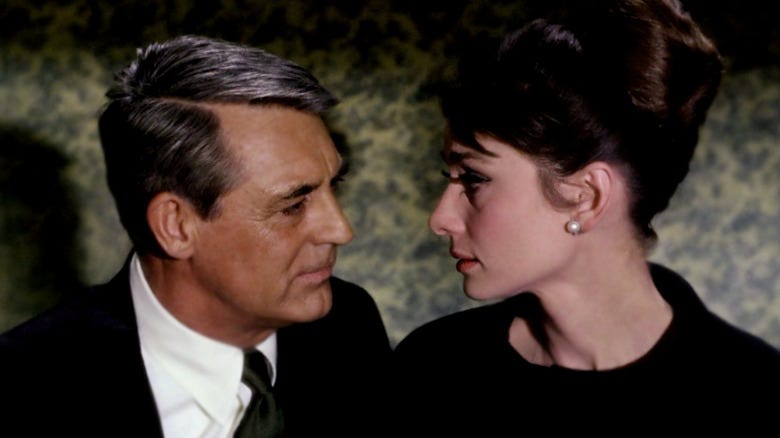Full Presence Is Terrifying
Plus: ARFID and Lyme and mold and more! [Link Drop]
“I'm living in the future, so the present is my past. My presence is a present, kiss my ass.” -Kanye West (before he became a Nazi).
I have been thinking a lot about presence recently. Often, we are there—hanging with a friend, or watching a movie, or by ourselves, wherever—but we are not really there. Because we are also somewhere else. To be fully present is to be a full self. To fully exist. To fully interact with something or someone. To take up space and contribute back to it. Presence exists on a spectrum. Perhaps 100 percent presence is and always has been rare, but there are gradations, and it feels like often these days, I, and many of us, do not get anywhere near full-presence.
More often than not, my mind feels pulled in a million different directions. If I am chatting with a friend, I am often thinking about something else (the world and how insane it is, namely). If I am watching a movie, I feel almost physical discomfort if I leave my phone in the other room. If I am working, I am also texting friends. Full presence is a challenge.
It is easy to blame everything around us for our lack of presence—politics making us too anxious to fully be there for each other, work wearing down our ability to concentrate on good things because we’ve used up all that concentration on mundane tasks, phones addicting us to being never fully present.
But I’ve also come to realize I am also culpable for my lack of full presence. I do it to myself—turning the volume knob of my own fullness, my own concentration, my own ability to contribute to any given situation down from an 8 or 9 to a 5 or 4. Because full presence not only feels hard, it feels painful. And I think that’s because the more present one is, the more present the world is within you. The more your eyes are open, the more they can ingest. And with the world in its current state, perhaps we all want to keep our eyes half-closed.
In this way, I think our common claim of internet overwhelm—that we all take in too much information now due to social media—is wrong, or right in the wrong way. Yes, we all see and process much more information than we once did, but the total effect of our interaction with the internet is to make us see and feel less: to be half on your phone and half in the real-world is to take in nothing fully from either, to not fully understand or contribute to either. Thus it is, in a way, actually a form of information scarcity.
We do this, I think, because presence requires vulnerability. It’s why the simple act of meditation—sitting still for 5 or 10 minutes—proves so difficult to master. Full presence can be terrifying.
Though few have even been masters of meditation, I think we live in an increasing crisis of presence. If monks can muster a relatively frequent 10 on the presence dial, perhaps the average person could at one point in human history sometimes hit 10, but frequently hit 8. And now, we all constantly live in the 1 to 6 range.
When we do hit 8 or 9 or 10, we often panic. What is an anxiety attack if not a reaction to too much presence, your brain being overwhelmed by the demands of being wherever it is, seeing whatever it’s seeing, without the comfort of distraction? What is our culture of sexlessness if not a sign that the ultimate thing requiring the vulnerability of presence—accepting pleasure from and giving pleasure to another person—now causes so many of us discomfort?
Yet somewhere deep down, we yearn for more presence. That’s why you hear people say things like, “why were actors so much more believably flirtatious, why did they carry so much swag” in old movies from the 50s or 40s. What we’re seeing in those old films is not just more interpersonal skills, but more there-ness—the man staring into the woman’s eyes, ingesting her words, processing them, allowing her into himself more fully than many of us seem capable of now.
That’s also why, I think, people are so concerned that our ability to read is declining; it’s not just that we miss the reading ability we once had, it’s that we miss our ability to be present with anything at all. We realize our ability to fully take something in—a book, a movie, a conversation—has been deeply eroded. That is the unseen linkage between our declining literacy and our declining ability to have friends and community and lovers: all things worth doing require presence.
And so, I think, the solution to our crisis of presence is not simply to get off our phones, but to wonder why we crave half- or less-than-half-presence so much; to investigate why we feel such discomfort when fully there and fully awake.
If you left your house without a phone, I think it is not just that you would miss the phone, it is that you would be scared about what comes up without it. What does looking at the world fully—its buildings and trees and violence and sexiness and such—require? What in you will it change?


